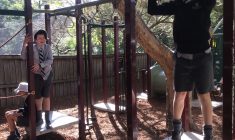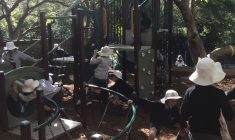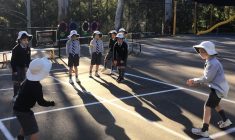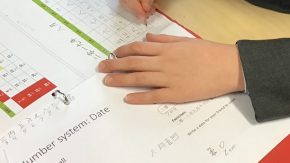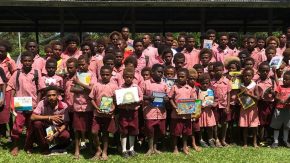The Importance of Play and Free Time
Pause a moment, take a deep breath in and picture a day in the life of your childhood. Each of us has had different experiences in a variety of environments and social structures, however, play was an activity we engaged in every day. Play is not just time to switch off from the demands and pressures of life, it also develops the skills children will need when navigating life.
“You can have a break from work and relax.” Connor Moseley, Year 6
Play is essential to the development of the cognitive, physical, social and emotional well-being of children and pre-teens. Play is essential, although when we enter primary school it is often forgotten, pushed aside or seen as a trivial waste of time.
From a young age, children use play as a vehicle to explore the world around them. A small rock can be a provocation for hundreds of different purposes, to skip on water, as a character in their story, or to purely observe. Children can conquer their fears and challenge themselves in safe and secure environments where they develop their imagination, creativity and self-advocacy skills. Play needs to be driven by the individual to delve into decision making, moving at their own speed in their own interests and be passionate in their choice of play. If this time is externally controlled, children will lose opportunities to practice lifelong skills of creativity, leadership and individuality. When students play in the playground, they are not only getting a mental break, but working on their social skills of communication, speaking and listening, understanding and empathy. They are actively entertaining themselves through the simple joy of youth.
“I get to use social skills to solve problems in the playground.” Ollie Fisher, Year 3
There are many factors that can reduce time for play including busy lifestyles, family structure, and the increased attention and importance placed on academics. With the stresses and business of everyday life it is paramount that children, no matter the age, have time for free, child driven play.
This is not to ignore the benefits of extra-curricular activities, tailored academic programs and the impending factors of a busy lifestyle, however the inclusion of play for children and youth is essential to balance the challenges and development of life.
Another reason for a decrease in free play can be attributed to the passive entertainment of television, computer and video games. Primary school children are still kids. They need an outlet multiple times a day for free time or play. If this includes boredom, that is completely acceptable and a normal part of life. Allowing a child to freely explore being bored within a comfortable and safe environment enhances the ability to recognise it and deal with it appropriately.
When talking to the boys at Newington about their play, many only spoke about sport in the playground. We then took the time to discuss the many other opportunities within their day that they play, including in their classrooms. They have the opportunity for free play time or ‘thinking time’ to explore their interests either individually or with their peers. They share their interests, knowledge and collaboratively develop their skills and confidence in a safe environment. We encourage this throughout the day, allowing the boys the freedom of play and exploration.
“It’s good for you, making you healthy and happy.” Angus Raffles, Year 1
Elissa Julian – Learning Enhancement Intern



